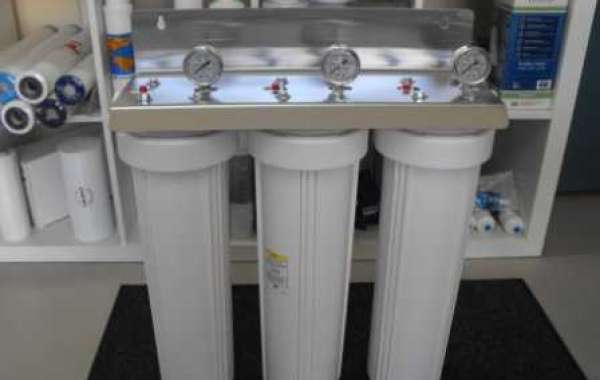Introduction
In the quest for cleaner, better-tasting water, homeowners in Newmarket and Milton often turn to water softeners as a solution. If you're considering investing in a water softener for your home, this article will guide you through the process of choosing the right one. We'll explore the benefits of water softeners, the differences between various types, and how they can improve your water quality.
Understanding Hard Water:
Before diving into the world of water softeners, let's understand the problem they aim to solve - hard water.
What is Hard Water?
Hard water is water that contains high levels of minerals, primarily calcium and magnesium. These minerals can cause various issues in your home, from clogged pipes to scale buildup in appliances.
The Benefits of Softened Water
Investing in a water softener newmarket can bring numerous advantages to your household:
- Improved Appliance Lifespan
Softened water reduces scale buildup in appliances, extending their lifespan and reducing repair costs.
- Cleaner Dishes and Clothes
Soft water leads to cleaner dishes and softer clothes, as it enhances the effectiveness of detergents and soaps.
- Reduced Plumbing Issues
With less mineral buildup in pipes, you'll experience fewer plumbing problems like clogs and leaks.
Types of Water Softeners
Now that we've established the benefits, let's explore the types of water softeners available:
- Salt-Based Water Softeners
Salt-based water softeners use ion-exchange technology to remove minerals from the water. They are highly effective but require the addition of salt pellets regularly.
- Salt-Free Water Softeners
Salt-free water softeners use alternative technologies like template-assisted crystallization (TAC) to prevent minerals from forming scale. They are low-maintenance but may not be as effective in extremely hard water areas.
- Dual-Tank Water Softeners
Dual-tank water softeners consist of two tanks, ensuring a continuous supply of softened water even during regeneration. They are ideal for households with high water consumption.
Choosing the Right Water Softener:
Selecting the best water softener for your Newmarket or Milton home depends on various factors:
- Water Hardness
Test your water's hardness level to determine the appropriate size and type of water softener you need.
- Budget
Consider your budget for both the initial purchase and ongoing maintenance, as some systems require more frequent servicing.
- Water Consumption
Calculate your household's daily water usage to determine the capacity required for your water softener.
- Space Availability
Ensure you have adequate space for the installation of the chosen water softener type.
Installation and Maintenance
Once you've chosen the right water softener, professional installation is recommended. Regular maintenance is crucial to keep your system running efficiently.
Additional Tips for Water Softener Maintenance
Proper maintenance is essential to ensure your water softener continues to function efficiently. Here are some tips to keep in mind:
- Regularly Check Salt Levels
For salt-based water softeners, monitoring salt levels is crucial. Make it a habit to check the salt level in the brine tank regularly. When the salt level falls below a certain point, add more salt to ensure the system can regenerate effectively.
- Schedule Maintenance Checks
Consider scheduling routine maintenance checks with a professional technician. They can inspect your system for any issues, clean the resin tank if necessary, and ensure that all components are functioning correctly.
- Use the Right Type of Salt
When adding salt to your water softener, choose high-quality salt pellets specifically designed for water softeners. Avoid using rock salt, as it may contain impurities that can harm your system.
- Pay Attention to Water Quality
While water softeners are excellent at removing hardness minerals, they may not address other water quality issues like sediment, chlorine, or contaminants. If you have concerns about other impurities in your water, consider additional filtration systems.
- Monitor Water Pressure
Ensure that your water softener milton is not causing a drop in water pressure in your home. If you notice a significant reduction in water pressure, it's essential to have the system inspected to identify and address any issues.
Conclusion
In conclusion, investing in a water softener for your home in Newmarket or Milton can significantly improve your water quality, extend the lifespan of appliances, and reduce maintenance costs. By understanding your water's hardness level and considering your budget and water consumption, you can make an informed choice that will benefit your household for years to come.














